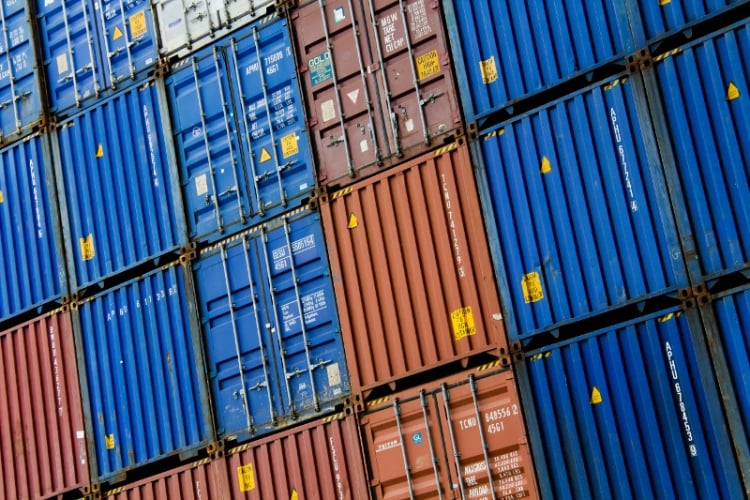
US renewables firm Clean Energy Associates (CEA) predicts that the solar industry’s latest anti-dumping and countervailing duty (AD/CVD) petition has a “high likelihood” of resulting in duties being paid on solar imports.
The petition was launched earlier this week by US-based solar manufacturers First Solar, Hanwha Qcells, Meyer Burger, and a number of other petitioners under the banner of the American Alliance for Solar Manufacturing Trade Committee.
Unlock unlimited access for 12 whole months of distinctive global analysis
Photovoltaics International is now included.
- Regular insight and analysis of the industry’s biggest developments
- In-depth interviews with the industry’s leading figures
- Unlimited digital access to the PV Tech Power journal catalogue
- Unlimited digital access to the Photovoltaics International journal catalogue
- Access to more than 1,000 technical papers
- Discounts on Solar Media’s portfolio of events, in-person and virtual
Or continue reading this article for free
It is seeking an investigation by the Department of Commerce (DOC) and the International Trade Commission (ITC) into products imported to the US from largely Chinese-owned solar manufacturers with operations in Vietnam, Malaysia, Thailand and Cambodia. The allegations claim that these companies are evading US tariffs on Chinese imports.
In its analysis of the latest claim, CEA said: “Based on the record of previous AD/CVD petitions, CEA finds a high likelihood that this petition will result in duties. In a study of all AD/CVD petitions from 2012 through 2021, the Government Accountability Office found that 74% of the petitions filed resulted in duties.”
Biden’s waiver to end in June
The most recent swathe of AD/CVD cases was started by small, California-based manufacturer Auxin Solar in February 2022, which sought an investigation into non-competitively low-priced solar imports from Southeast Asia. In August 2023, the DOC found five manufacturers guilty of circumventing US import tariffs – Trina Solar, Canadian Solar, BYD Hong Kong, New East Solar and LONGi-owned Vina solar – by relocating portions of their supply chain from China to Southeast Asia for “minor processing” before shipping to the US.
However, despite the petition’s success, no duties have yet been collected on offending imports. President Joe Biden introduced a two-year waiver on the tariffs, to act as a “bridge” to allow the US solar industry to adjust its supply and avoid the potential disruption caused by a positive ruling.
In effect, this waiver also allowed importing companies to alter their supply chains, too. In one example, Canadian Solar announced plans for a 5GW n-type wafer factory in Thailand since the DOC ruling. The manufacture of wafers is the de facto ‘cut off’ point for the AD/CVD tariffs, as they do not extend to stages further upstream like ingot pulling or polysilicon production.
According to the CEA, this most recent appeal from the American Alliance for Solar Manufacturing Trade Committee will receive a decision from the DOC by 14 May and a preliminary verdict on “injury to domestic industry” from the ITC by 10 June.
Potential impacts on solar supply
The timing of the appeal will mean that any importers newly found to be circumventing tariffs will not benefit from Biden’s executive waiver.
CEA said: “This petition threatens to turn the oversupply of PV modules serving the US PV market into undersupply, due to a potential bottleneck of duty-free cells.”
The US imports the overwhelming majority of its solar cells. Mark Widmar, CEO of one of the petitioners, First Solar, said in a statement last month that “not even one of the crystalline silicon panels installed [in 2023] was assembled with American-made solar cells”. Moreover, most of the world’s solar cells are produced in China and Southeast Asia, which are subject to AD/CVD rules.
CEA continued: “CEO estimates that at the beginning of 2024 there was 18GW of crystalline silicon cell manufacturing capacity in non-AD/CVD countries … Even when another 17GW of thin film module capacity is considered, there is still less crystalline silicon cell and thin film supply in non-AD/CVD countries than projected US demand in 2024.”
It predicted that, if the DOC initiates investigations, it could “greatly reduce” US module and cell imports. Furthermore, CEA said: “If these duties are passed along to buyers, they will introduce uncertainty to the financial models that projects depend on. This will potentially cause projects to be delayed, cancelled and/or sold.”
